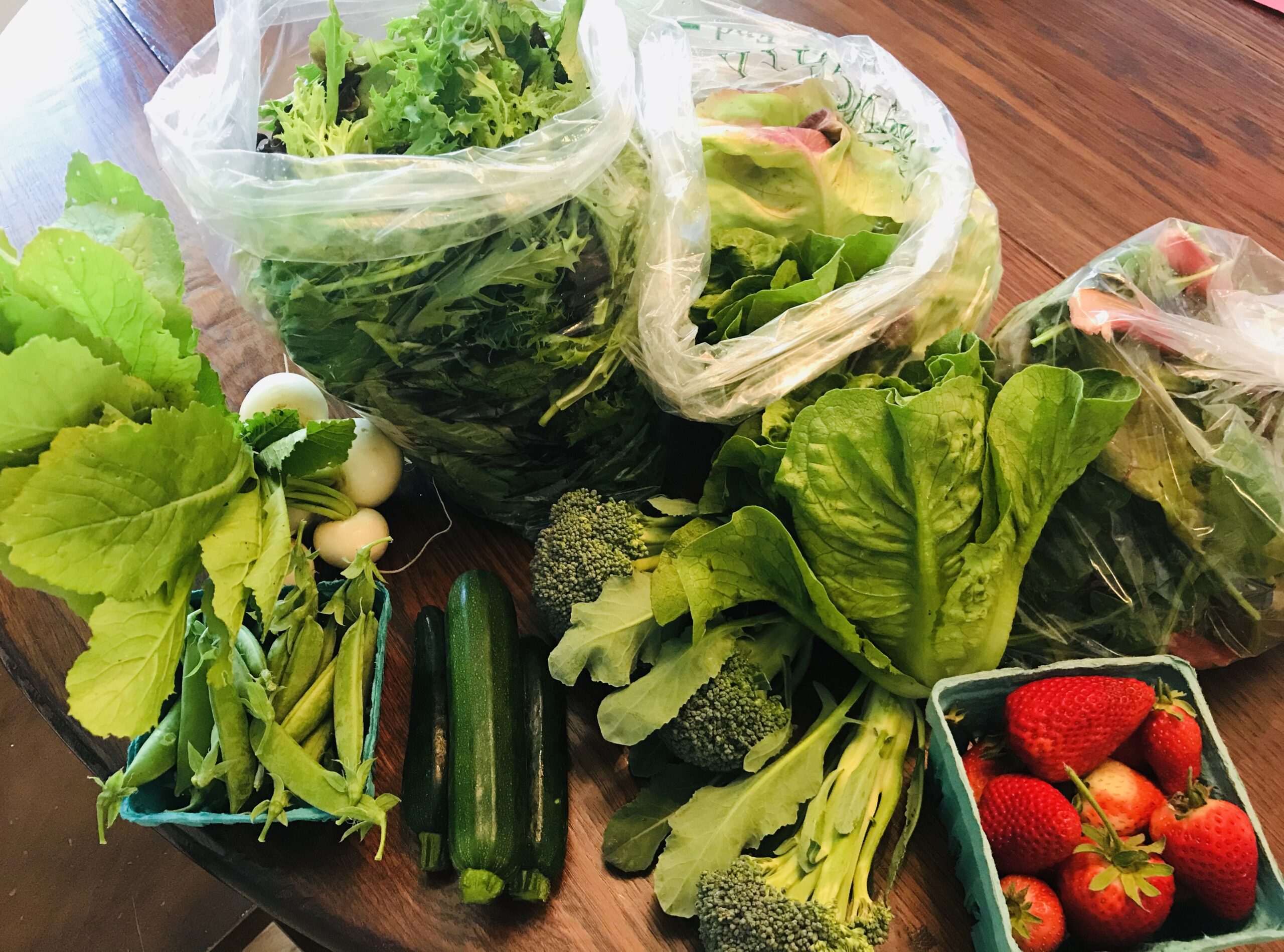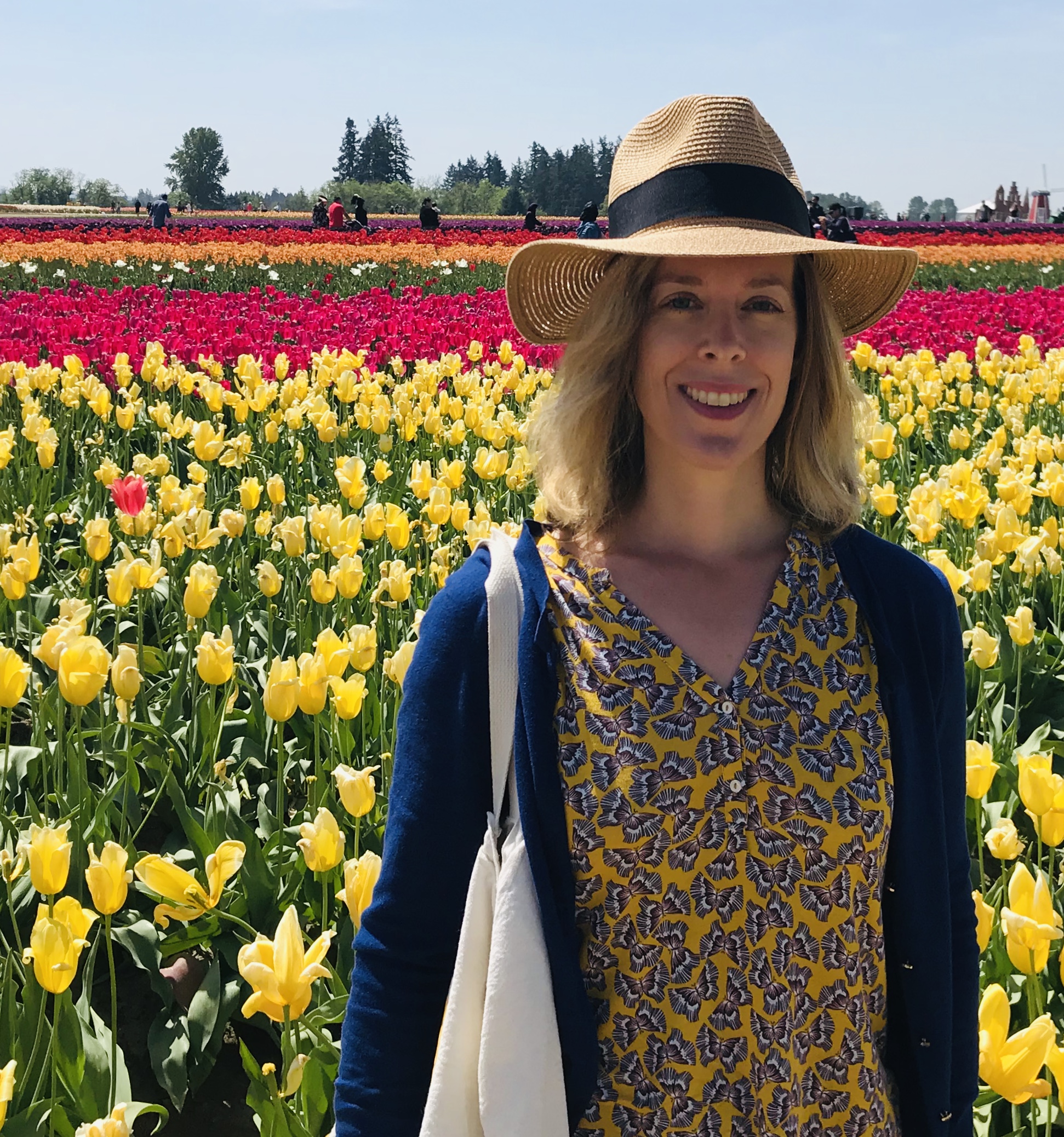
We eat a lot of produce and mostly cook at home, and we can’t wait until the Lane County Farmers Market is in full swing each season. Over the years, we’ve considered joining a CSA farm share instead but always felt the cons would outweigh the pros for us. (More on that below.)
This year, in an effort to avoid crowds as well as support our local farmers during COVID-19, we finally decided to take the plunge.
What is a CSA?
CSA, or Community Supported Agriculture, is a way for consumers to buy local, seasonal food directly from a farmer. The farmer offers a certain number of “shares” to the public, which usually involves a box of produce but can even include products such as meat and dairy. By purchasing a share, the consumer receives a box of seasonal produce each week, throughout the growing season. There are many wonderful farms to choose from throughout the state. Willamette Farm & Food Coalition offers a detailed guide for Lane County, and Portland Area Community Supported Agriculture offers a detailed guide for the Portland area.
Pros of Joining a CSA
- Provide direct support to a local family farmer.
- Access to delicious, nutritious, plant-based produce in support of a healthy diet.
- Teach your children about the importance of a healthy diet, trying new things, and supporting local farms.
- Add variety and spontaneity to your meal planning (this may be considered a pro or a con, depending on your perspective).
- Some farms offer home delivery and most offer convenient pickups.
- Purchasing locally grown food is more environmentally friendly.
- Many farms offer several weeks of vacation credit (vouchers to use at the market, for example) when you are out of town.
- Can be more affordable than going to the market depending on the cost structure.
- Some farms even offer a work trade for even more affordable shares.
Cons of Joining a CSA
- Limited to the farm that you are supporting.
- Potential waste of food and money if you are heading out of town for long periods.
- Less control over your meal planning.
- Potential waste (of food and/or money), in general, if you do not plan carefully.
- Bigger commitment.
- May not like what you get.
A few other considerations to keep in mind are which farm you want to support (and why), convenience of pickup options, timeframe and quantity of the share, type of the share, and payment plans. Some farms require you to pay the entire share upfront, and others are more flexible about offering payment plans.
We just picked up our first share last week, and we were pleased with the experience. Pickup was convenient, and communication was well thought out. We were also happy with the quality and the variety of the produce. I was concerned about waste, but that will not be a problem for us! We had purchased the “full veggie share” as well as the “salad lovers add-on,” and by my estimate it was about three days of produce for our plant-forward family. Among the veggies we received in our initial bag: a large bag of salad greens, a large bag of assorted greens (chard, kale, etc.), a small broccoli head, turnips, sugar snap peas, strawberries, two small zucchini, baby turnips, and some herbs.
I look forward to the season ahead and all the wonderful things we’ll be cooking.

Camille is a Pacific Northwest native who was born in Seattle and has been living in Oregon since 2007. She has worked professionally for local and national nonprofits and is currently a freelance writer while exploring the Northwest and beyond with her family.
